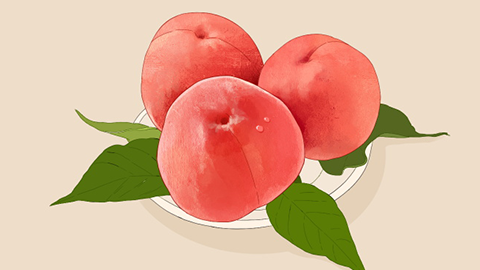Can I eat peaches during the late stages of pregnancy?
In general, pregnant women can eat peaches during the late stages of pregnancy, but should do so in moderation. Detailed explanations are as follows:

Peaches are rich in various vitamins. For example, vitamin C helps enhance the pregnant woman's immunity, promotes collagen synthesis, and benefits the skin and tissue repair. Vitamin A plays a role in fetal vision and epithelial tissue development. At the same time, peaches contain abundant dietary fiber, which can promote intestinal motility, alleviate common constipation problems during late pregnancy, and prevent hemorrhoids. Their ample water content and natural sugars can replenish energy expended from physical activity and relieve physical fatigue caused by the fetus pressing on the bladder. Additionally, potassium in peaches helps regulate the body's electrolyte balance and can reduce edema commonly experienced during late pregnancy.
However, pregnant women should choose fresh, moderately ripe peaches during the late stages of pregnancy and avoid under-ripe peaches with excessive acidity to prevent gastrointestinal irritation. The peach skin should be thoroughly washed to remove fuzz and pesticide residue before consumption. It is recommended to soak them in salt water and then rinse thoroughly to avoid allergic reactions or gastrointestinal discomfort. Consumption should be moderated, and excessive intake should be avoided to prevent excessive sugar intake, especially for pregnant women with elevated blood sugar levels, who should strictly control their intake.








